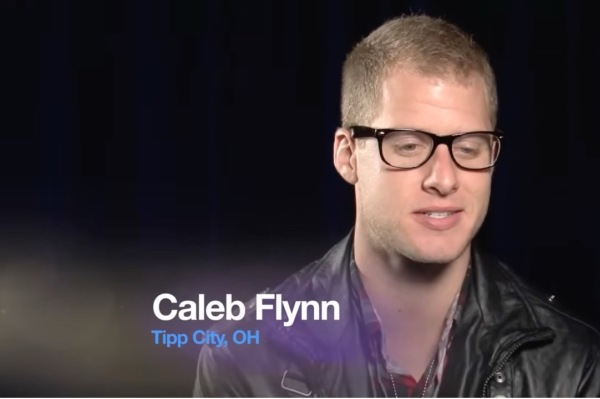Lorie loves all things creative but Colorado wants to censor her

“Lorie loves all things creative…” It’s a simple line Lorie Smith uses to introduce herself and her small business, 303 Creative, to the world.
Lorie’s a native Coloradan, and the “303” in the name of her web and graphic design company offer a nod to the Denver metro area—the area code for the businesses, nonprofits, and individuals she serves.
But in a state known for exquisite natural beauty and warm welcome to a diverse set of visitors, adventurers, and entrepreneurs, Lorie is getting Colorado’s cold shoulder.
It’s ironic that the Centennial State—welcomed into the union 100 years after the Declaration of Independence—is now censoring its own citizens, mandating that anyone who runs a business must either keep quiet or express full-throated agreement with the state’s new orthodoxy.
If you look at Lorie’s website, you’ll find a digital collage of causes she’s eager to support. Lorie comes from a family of entrepreneurs, and after years of marketing and branding for other companies, she launched her own business—specifically because she wanted to exercise more creative control over her projects. As the sole owner and operator of 303 Creative, Lorie directs the scope, mission, and priorities of her business. But not if Colorado has its way.
Lorie’s websites have a purpose and a strategy. Like any web designer, Lorie chooses colors, designs logos, and employs code in order to serve her clients and to convey messages in the most compelling ways possible. Lorie’s contact page serves as the first of many conversations between client and creator. While clients often come with only a basic idea of what they want, Lorie transforms those ideas into tangible graphics, logos, and websites.
Lorie would love to carry those skills over into the wedding industry—to help couples design a website that uniquely tells a story about their wedding. She carries joyful memories from her own wedding and wants to walk with engaged couples and celebrate marriages through her custom websites.
Lorie believes that marriage is a sacred union between one man and one woman. But, by Colorado law, she’s not even permitted to publish her beliefs about the nature and meaning of marriage on her website while explaining what she can and cannot create. Lorie’s happy to serve all customers; she simply won’t speak all messages. She won’t add her “Designed by 303Creative.com” stamp to anything that contradicts her faith or her convictions.
But that’s not enough for Colorado. Even after years of litigation—meant to clarify that her rights were protected before she faced fines and state-compelled “re-education”—Lorie finds herself in legal limbo. She’s unable to expand her business and simultaneously clarify her beliefs about marriage—the very beliefs that the U.S. Supreme Court has stated not once, but twice, are held by good and decent people. She’s not even permitted to explain her beliefs on her own website or say why she can’t create websites contrary to those beliefs.
It’s not the first time Colorado has shown itself hostile to conscience rights. Twice the Colorado Civil Rights Commission has shown hostility against Masterpiece Cakeshop owner Jack Phillips for similar beliefs. As the Supreme Court explained in that case, “the record here demonstrates that the Commission’s consideration of Phillips’ case was neither tolerant nor respectful of his religious beliefs.” And this hostility continues.
Colorado’s recent audit of the commission reveals a troubling pattern of failure to demonstrate that it’s operating in a “fair and accountable manner.” Instead, the commission insists it will continue to exercise its “quasi-judicial and quasi-prosecutorial roles” and “will not engage in creating a record of its deliberations.” In short, the same commission that the Supreme Court scolded for failure to respect the rights of Colorado citizens insists on continuing business-as-usual.
But while Colorado marginalizes Lorie’s voice, other courts are protecting artistic freedom. On Sept. 16, the Arizona Supreme Court explained that the government cannot force people to design and create custom artwork expressing messages that conflict with their core beliefs. As the court wrote, it is a “fundamental principle” that “an individual has autonomy over his or her speech.” That holds true for speakers whose views seem “old-fashioned” or “even offensive,” because freedom is “for everyone.”
On Aug. 23, the U.S. Court of Appeals for the 8th Circuit ruled in favor of a pair of Minnesota filmmakers, Carl and Angel Larsen, noting that the “First Amendment allows the Larsens to choose when to speak and what to say…”
“Indeed,” the 8th Circuit continued, “if Minnesota were correct, there is no reason it would have to stop with the Larsens. In theory, it could…require a Muslim tattoo artist to inscribe ‘My religion is the only true religion’ on the body of a Christian if he or she would do the same for a fellow Muslim, or it could demand that an atheist musician perform at an evangelical church service.”
Lorie loves all things creative, and she’s ready to bring that passion to a whole new set of clients. She has the constitutional right to do so. The question remains: Will Colorado foster freedom and celebrate real diversity, or will it keep trying to censor her?
Jessica Prol Smith is senior news writer and editor with Alliance Defending Freedom (@AllianceDefends), which represents 303 Creative.





















